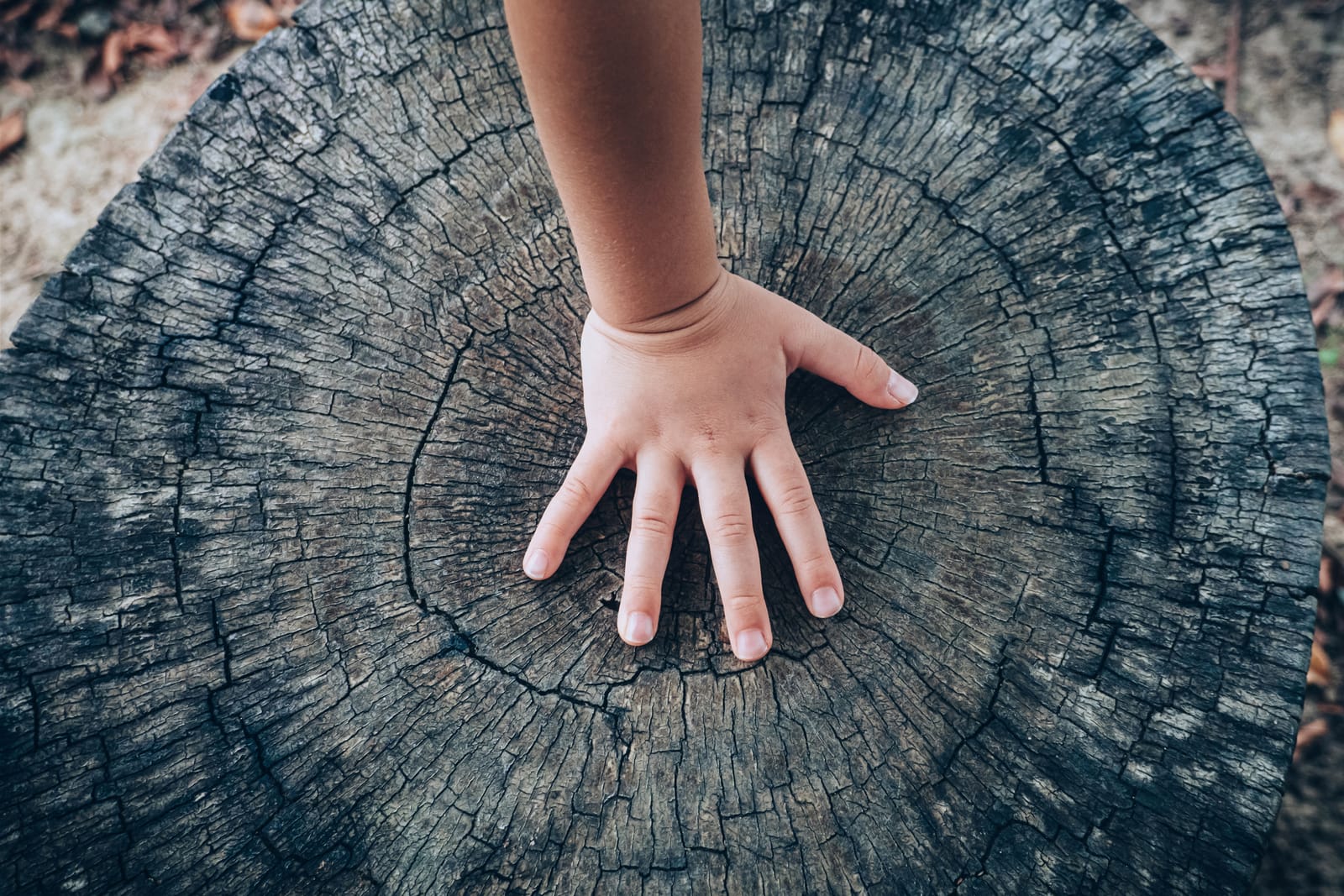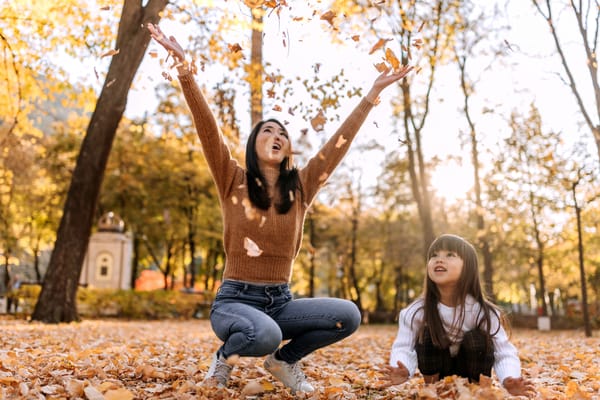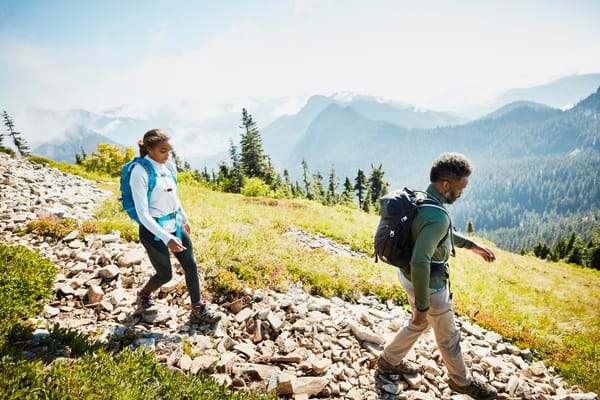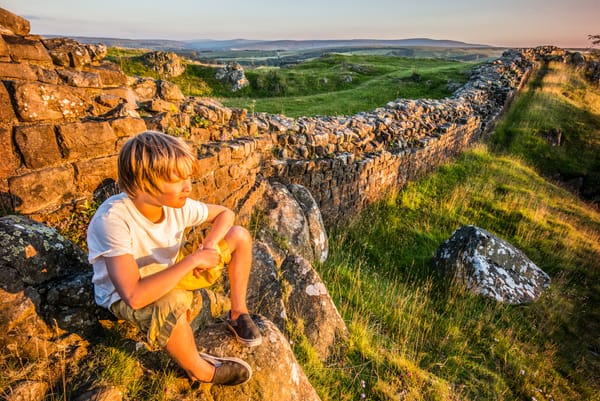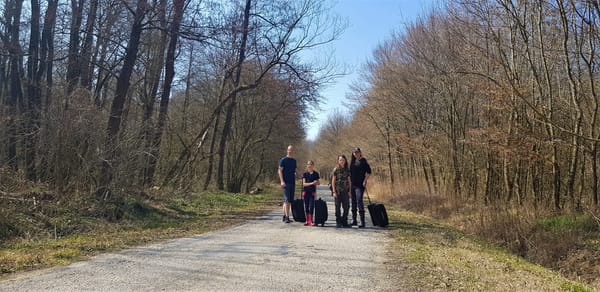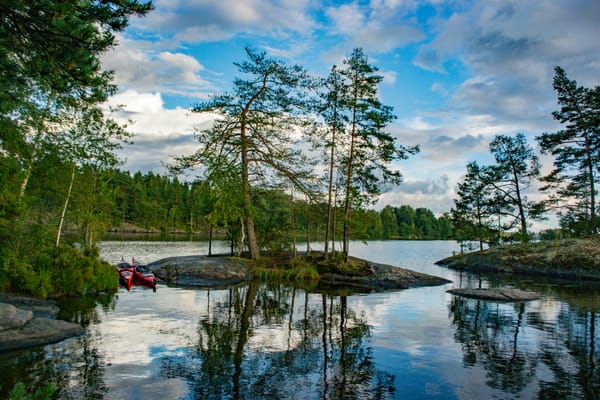Highly Commended in our recent Writing Competition, read how and why we need to connect with nature
As a child, I felt so at home in natural surroundings; I'd spend ages watching bees and bugs in the garden, I would look out of the playground window at the trees in the wind and the birds swooping around, and find a kind of peace in my busy mind. I loved to go for forest walks with my family, or to spend a day at the beach, where I would search for shells with an endless enthusiasm.
Nature was my playground, where my imagination was able to run free and my body was able to run, jump and climb. I observed the sights, sounds and smells, I loved the season changes. The tree that blossomed in our garden would yearly be a sign that my birthday was coming, I’d catch the ‘autumn smell’ in the air or watch the twinkling constellations on winter nights from my back garden.
As I got older, walking my dog as a teenager was a sanity saver during difficult times. I would go on 2 hour rambles with her and leave my worries behind.
Exploring Nature with a Toddler
When I became a parent, it was during a time in my life that had been difficult and challenging. I loved becoming a Mum but I was full of anxiety, physically in aches and pains, mentally fragile and on edge.
Slowly, I rediscovered nature, through my daughter’s eyes. I took her on little picnics to parks and beaches, I showed her flowers, took her to the butterfly farm, collected sticks, stones, shells. Joy and peace crept back into my life and I became determined that she would get to experience much of what I had as a child, that joy of being outside and being in nature.
At the same time, I began to retrain and change my career path. As I overcame my anxiety to become a better parent, I wanted to help other people do the same thing. It became important to me in a way nothing had really been before. I trained in baby massage and yoga and as a children’s yoga teacher. After teaching for a couple of years in different venues, I began to explore doing some classes outside, in a nearby forest and at a beach. A lot of my class themes focused on what was happening in nature and the seasons.
During covid, when outdoors became more important for people, I retrained to offer welllbeing classes in the outdoors and have had some amazing experiences teaching in forests and on beaches for different organisations and am now branching into running family wellbeing days and retreats.
Health Benefits of Nature Connection
As most of us probably know and realise, connection with nature enhances our physical and mental wellbeing. There is so much research going on around this, the Japanese, for example, have embraced the benefits of forest bathing since the 1980s and it is now becoming so much more popular here with the growth in the number of forest schools and in the UK, following Scandinavian countries example.
Trees provide us with oxygen, they also give off phytoncides, which can actually benefit our immune systems as they help us increase the amount of ‘natural killer’ cells that fight unwanted things in our body. The benefits also last longer than just the day you are out in the forest as well, going on for up to 30 days.
Nature Benefits Babies Too
Nature also provides the best sensory input for us all, including babies and children. Getting babies, toddlers and children out into nature and letting them interact with it is one of the best things for their development.
Using our own senses, we can bring ourselves into a more mindful state, lowering stress when we are out in nature. You may also have heard of the term ‘blue mind’ about how being on, in or around water has so many mental health benefits. When you remember that most of the planet and our bodies are made up of water, and how we develop in the womb in water, it isn’t surprising that water is calming for us.
We are very lucky in our part of the world that most of us can have access to coasts and forests or even parks and gardens and to have so much opportunity to connect with nature.
Connecting with nature is mostly free and accessible to all in some way. Our children don’t need sterile, super safe environments, bright lights, soft play and technology to be happy and well developed, but to give them the opportunity to interact with nature is giving them so much more for their development, and can reduce stress and anxiety as well.
There is a movement called 1000 Hours Outside, which is aiming to get families to reconnect with nature and each other. There are some children spending 4 to 7 hours on screens per day with only 15/20 minutes of outside time, compared to a generation ago when children could be outside for hours.
As parents, we are the ones with the power to change this - it isn’t always the easy option, but small steps and changes now could make such a big difference to our children in the future.
Small Ways to Connect with Nature
There are so many small ways that you can connect with nature, from planting flowers or herbs in a window-box, to going on a nature walk and letting children climb trees, putting some wellies on and splashing in puddles on a wet day, or taking a day trip to the nearest beach or forest or park. Maybe look up leaf identification or get a book on trees from a library, go on a birdwatching walk to see how many types you can notice or sit outside and look up at the stars with mugs of hot chocolate.
A generation ago, people could have named and identified different trees from their leaves, or named the constellations; we are losing that kind of knowledge.
As humans, we are a part of nature, when things get too much, getting out in nature can change our whole perspective. We get out of our busy mind and more in tune with our body and senses. By following the natural cycles and rhythms of nature, we understand that we too are part of those cycles. We also understand our responsibility to look after the natural world. The seasons, weather and the phases of the moon for example do affect our lives and continue to do so, even if we are not directly involved in farming or working with nature.
By setting the intention of consciously connecting with nature and our children, we can boost health, reduce stress, and have a ripple effect that could even go beyond just our own family into the wider world and into the future.
Lindsay Murray is a wellbeing facilitator, who works with families and children in a range of ways and teaches them tools to help them to nurture, empower and connect in order to lead a calmer, happier life. Follow her on Instagram or Facebook.
MORE INSPIRATION
LISTEN To the 1000 Hours Outdoors podcast



